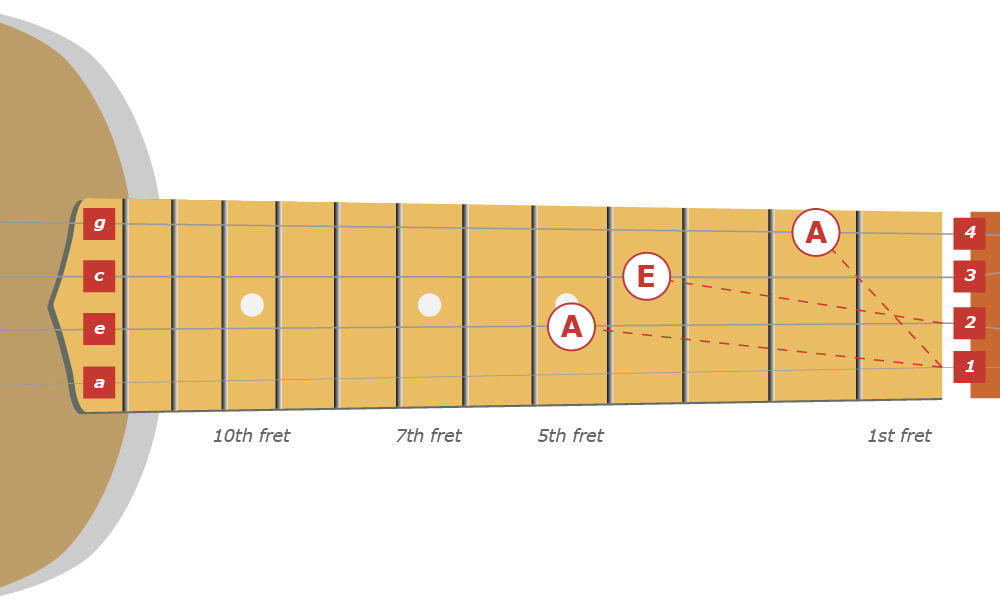Tuning the Ukulele: Quick Guide
How to tune my ukulele?
The standard tuning (Hawaiian tuning) is g'c'e'a' and can be used for soprano, concert, and tenor ukes.
There are also alternative tunings for the various sizes:
various tunings:
| Sopranino | d' g' b' e' |
| Soprano | g' c' e' a' or a' d' f#' b' |
| Concert | g' c' e' a' |
| Tenor | g' c' e' a' or e' a' c#' f#' |
| Baritone | d' g' b' e' |
| Bass | E A D G |

Tuning
GCEA tuning results in an open C6 chord, which is typical for the ukulele sound. This is also known as the "high G". The fourth string is tuned high and provides the so-called close voicing.
On the other hand, there is also the "low G", which is particularly common with soloists. This tuning is used most often in tenor ukuleles and can only be played with specially made "low G" strings. Changing from high to low may require reworking the nut, as the uppermost string is much thicker then.
Which string set is the right one for my ukulele?
The better-known manufacturers have discontinued the use of traditional nylon and have moved to a synthetic material of greater density, which imparts more dynamics and a better sound.
Nylgut/Nyltech strings are artificial gut strings which achieve a good natural sound. They also have the same density and are the most frequently used strings globally.
Fluorocarbon and titanium strings are even denser and provide best possible intonation. But the tension is very high, and the strings are thin and hard.
Solid-e-ukuleles with magnetic pickups can only take steel strings.

Different strings



